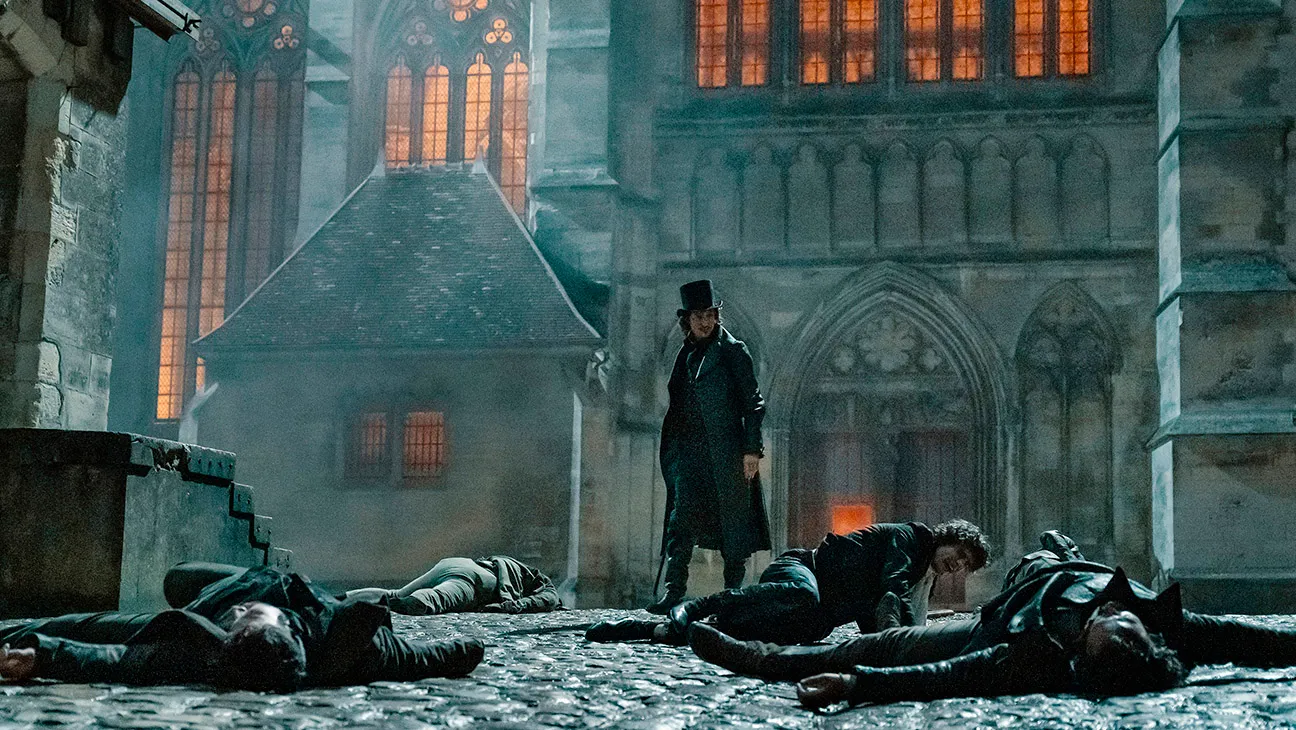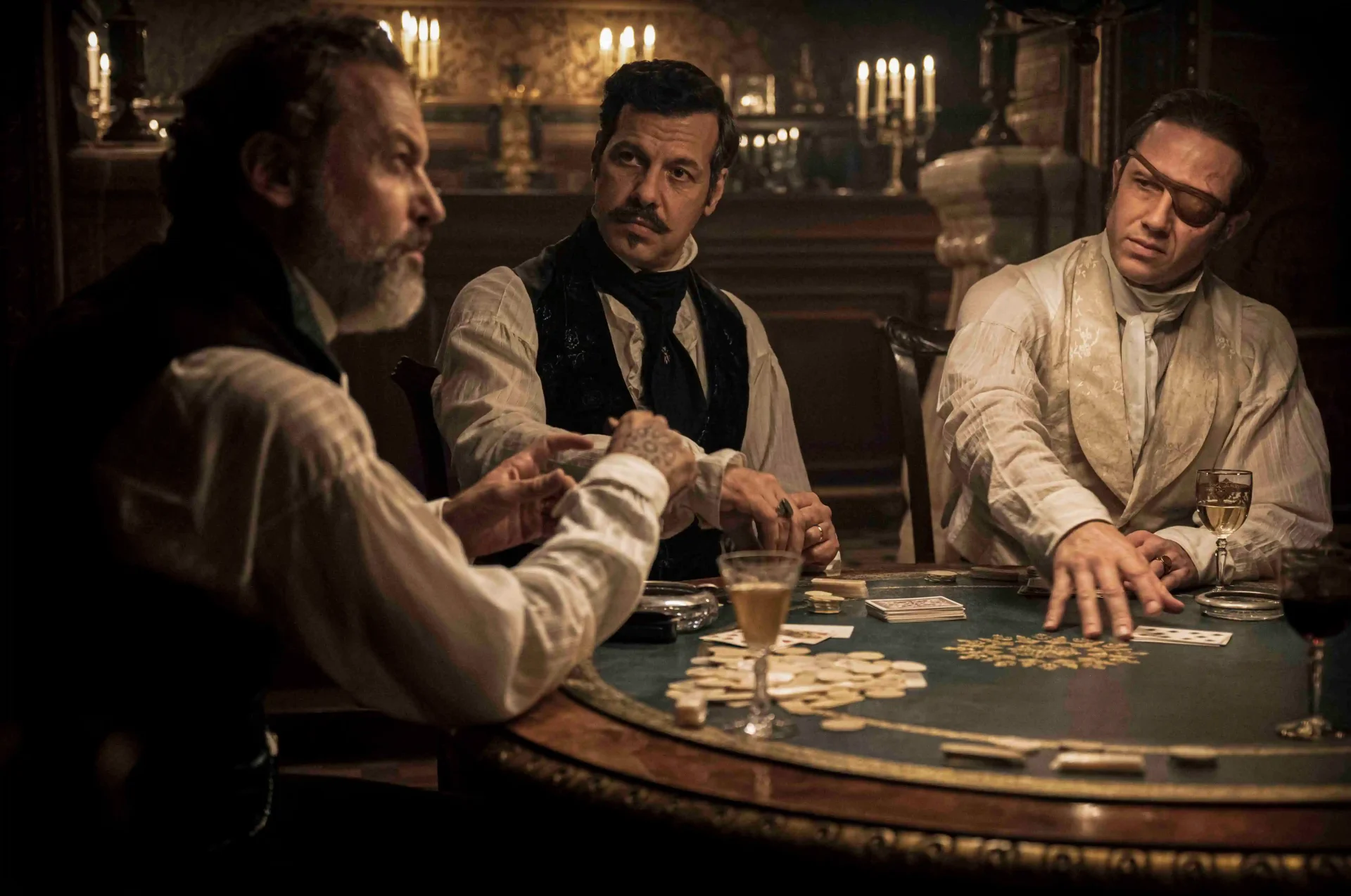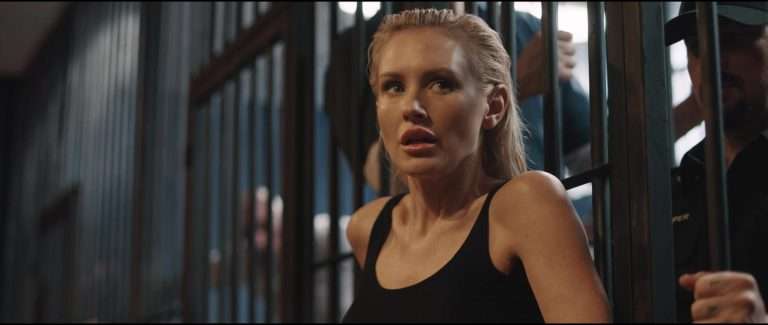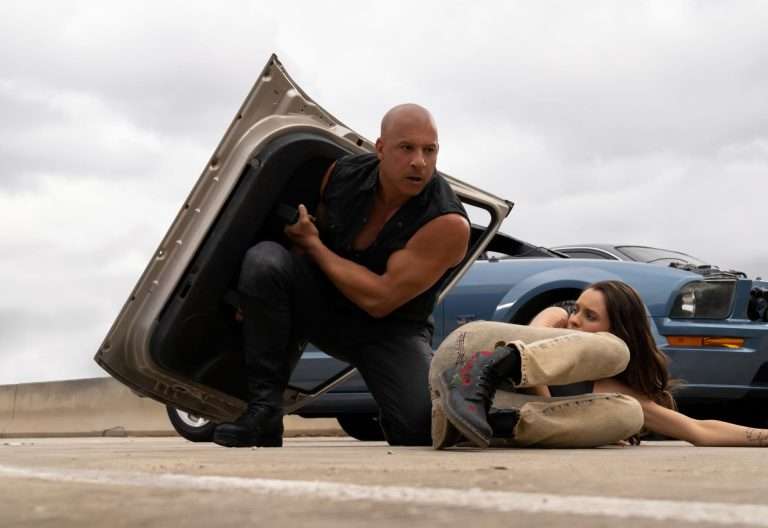Like his most celebrated novel “The Three Musketeers,” Alexandre Dumas’s iconic tale “The Count of Monte Cristo” has been adapted so often in so many different cultural contexts—from the silent era to the American blockbuster to the plethora of Indian interpretations—that it becomes easy to forget a critical element that defines the writer’s oeuvre: Dumas was, in fact, very French. Bringing the story back to its home country, directors Alexandre de la Patellière and Matthieu Delaporte choose to remind viewers of this essential reality by embracing the story in true French fashion, with a cheeky wit in the face of its own posh self-seriousness.
Having seen great success penning last year’s duology adapting Dumas’s most famous story, de la Patellière and Delaporte upgrade themselves to the directors’ chair for “The Count of Monte Cristo” as they relay the tragedy of Edmond Dantès, the prototypical framed man. Played by Pierre Niney—whose lanky youthfulness gives way to an overhanging dominance as he’s gradually given more scenery to chew—Dantès has the perfect life for a post-Napoleonic French sailor. Having just been promoted to captain after a great show of bravery, Dantès is set to marry the love of his life, Mercédès (Anaïs Demoustier), at the side of his trusted friend, Lieutenant Fernand de Morcerf (Bastien Bouillon).
That is unless the captain he’s succeeding has anything to say about it, for Captain Danglers (Patrick Mille, a spitting image of Hugo Weaving, for a fittingly giddy villainous role) frames Dantès as a spy for the exiled former emperor. Enlisting the local prosecuting officer Villefort (Laurent Laffite) to imprison him for life, Dantès’s fate is then sealed by the envy-induced testimony of Morcerf. Now stuck on an island prison with only the company of an elderly prisoner (Pierfrancesco Favino) to teach him ways of life and bequeath him a fortune left on the faraway island of Monte Cristo, Dantès plans his escape and eventual revenge on the three men who sent his future into ruin.

If that plot synopsis sounds like a mouthful, believe me, we haven’t even gotten started yet. “The Count of Monte Cristo” is a film verging on three hours, and all of this aforementioned preamble—all of it!—is relegated to roughly the first act. The final two hours are spent luxuriating in Dantès’s dizzyingly elaborate revenge plot, and it’s here that the directors get the most out of adapting this age-old narrative for the 2020s.
The longer the film goes on, the more liable you become to think that no amount of wrongdoing can possibly warrant such a meticulous array of deceptions, pre-planned meetings, and elaborate disguises; if the story weren’t set in the 1800s, you’d think you were watching a Mission: Impossible film, complete with face masks the quality of which completely beggar belief. And yet, as the film goes on, de la Patellière and Delaporte reveal themselves as fully aware of that ridiculous reality and begin to play up the excess of Dantès’s plot for humor.
By the time we’re made to watch Dantès recite a ghost story to a table full of his intended victims, as he regales the true yarn of how one of them abandoned their newborn child for dead and buried him in the backyard—Julien de Saint Jean plays the grown-up version of that child, an instrumental collaborator in the Count’s plot—it becomes clear that “The Count of Monte Cristo” is fully aware that the Count’s all-consuming quest for revenge can be seen as nothing but poison. The more we laugh alongside his incremental triumphs, the more we’re forced to acknowledge that we’re laughing at just how insanely exorbitant these triumphs are. It’s like watching a heist film in which the final reveal is that the double-crosser that you thought had executed their last betrayal turned out to be working for the protagonists the whole time.

De la Patellière and Delaporte don’t match the excess of Dumas’s source novel with any play at excessive presentation—although the ample use of slow motion in conjunction with some overexposed interiors and Jérôme Rebotier’s melodramatic score gives more credence to the notion that their tongue-in-cheek approach is intentional—but for a three-hour film, that’s arguably to its benefit. With so much ground to cover, drowning such already steep material with more formal bravado than needed would surely have made every second felt. With such an involved plot, the directors and editor, Célia Lafitedupont, manage well in keeping it all moving at a brisk pace.
According to reports, “The Count of Monte Cristo” is the most expensive French film to be produced in 2024, and such an investment would necessarily incline a lofty studio project adapting classic material to be as wide-reaching as possible in its appeal. While there’s no doubt that the film is indeed a populist undertaking, with every penny of its reported €42.9 million visible onscreen, Alexandre de la Patellière and Matthieu Delaporte use that grandeur to their advantage; much like their absurdly wealthy subject, these filmmakers will ensure that every resource at their disposal will be put towards communicating a literal embarrassment of riches. The only thing crazier than Dantès’s plot is that it somehow remains a simplified version of what Alexandre Dumas laid out in the book.








